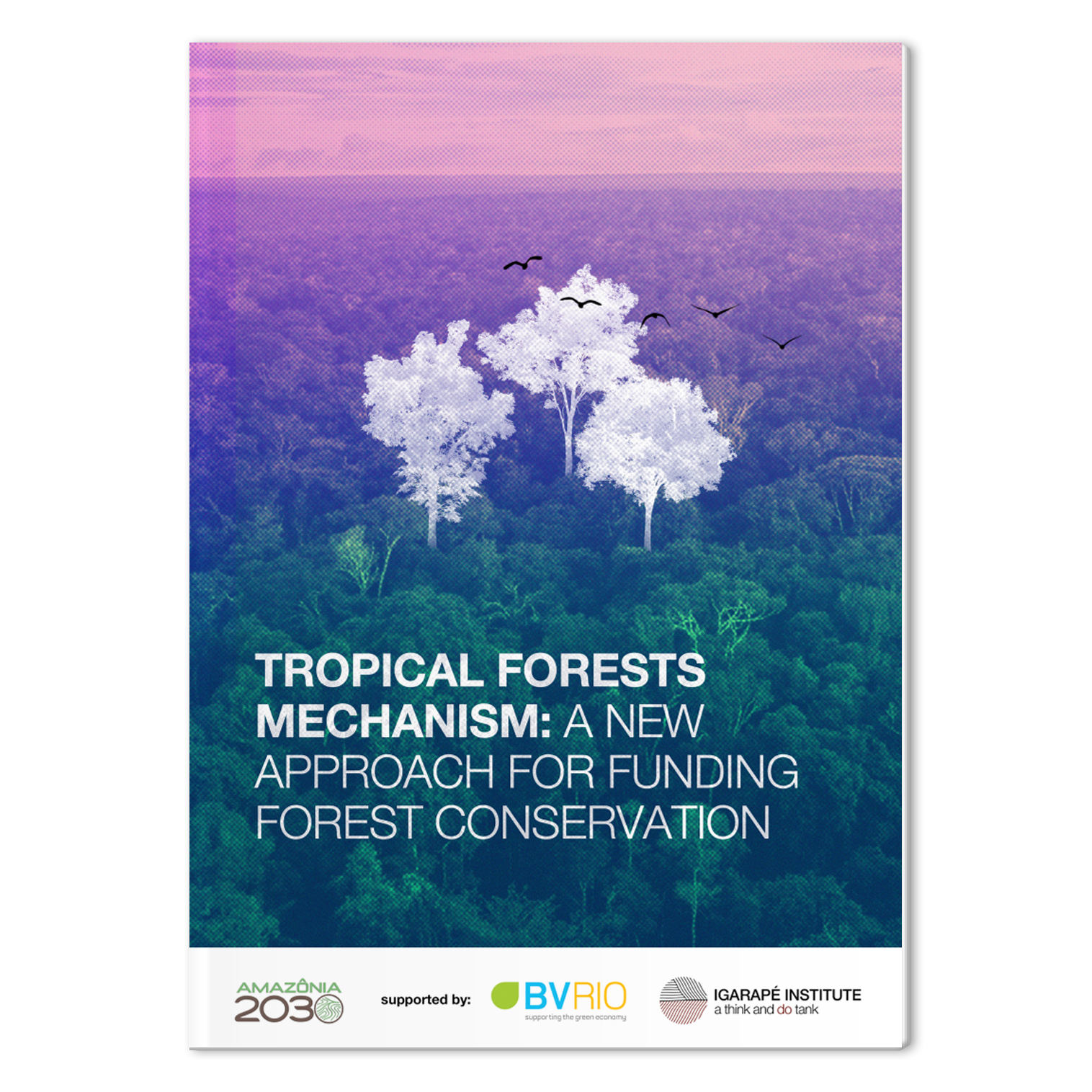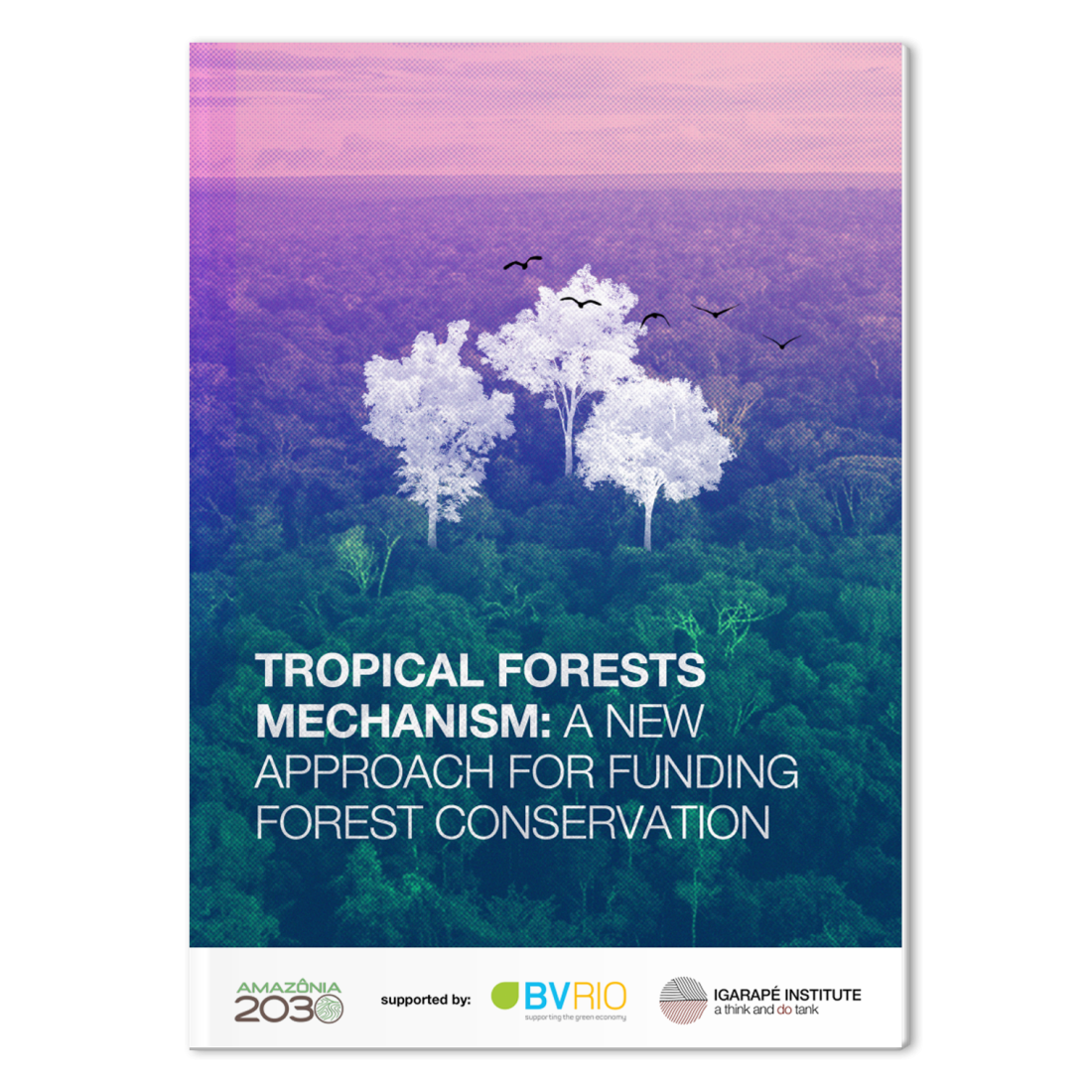Tropical Forests Mechanism: a new approach for funding forest conservation

Amazon 2030, with the support of BVRio and Igarapé Institute, released today a concept note on a Tropical Forests Mechanism (TFM) aimed at supporting nature finance at scale to guarantee the maintenance and enhancement of tropical forests worldwide. The mechanism is expected to complement the Brazilian government’s Tropical Forests Forever Fund (TFFF), announced at COP28, to secure funding to protect rainforests in the Amazon region, Congo Basin, and Southeast Asia.
These three basins hold most of the world’s 1.2 billion hectares of tropical forests, and it is estimated that annual payments of USD 30 per hectare would provide enough incentives for their protection. The oil and gas sector, producing approximately 30 billion barrels a year, could provide most of the funding needed with a USD 1 per barrel contribution.
Published ahead of the G20 Finance Ministers’ Meeting, the concept note proposes rules and procedures for distributing annual payments among tropical countries and to guide the application of resources within participating countries to maximise the impact in conservation of tropical forests.
The TFM focuses on ‘hectares of forests’ rather than ‘tonnes of carbon’ as its primary metric, supporting the provision of environmental services such as carbon storage, biodiversity conservation, climate regulation, water retention, and benefits to forest stewards and inhabitants. Unlike traditional carbon markets, the approach avoids challenges related to additionality, leakage, and permanence, allowing for an effective conservation effort.
Key Features of the TFM:
- Global financial support: Encourages resource-intensive sectors to contribute, aiming for a minimum of USD 1 per barrel of oil produced, potentially generating up to USD 30 billion annually.
- Annual payments for forest conservation: The TFM proposes to allocate USD 30 per hectare of forest to tropical countries, promoting forest maintenance and enhancement.
- Penalties for deforestation: The TFM also supports imposing a USD 3,000 penalty for each hectare of deforestation, incentivizing countries are incentivised to reduce forest loss, in the same rationale employed by Brazil’s proposed TFFF.
- Eligibility Criteria: Ensures countries must meet strict deforestation reduction targets and support local communities and forest stewards.
- Fast implementation: by not having complex baselines and financial instruments, it allows countries to achieve qualification in the short term, enabling rapid implementation of the mechanism and thus accelerating the achievement of the global goal of ending deforestation.
The TFM is expected to complement and support the Brazilian government’s TFFF, garnering a conceptual framework from the civil society organisations that support the mechanism. The TFFF underscores Brazil’s commitment to environmental protection, setting a powerful example for other countries that aligns with the growing interest in nature-based solutions for climate change following a significant decrease in Amazon deforestation since early last year.
In this sense, the TFM can be supported by a Global Pledge for Tropical Forests, through which companies would actively contribute to conserving the world’s tropical rainforests, fostering a global alliance for sustainability and environmental stewardship.
Read the publication



